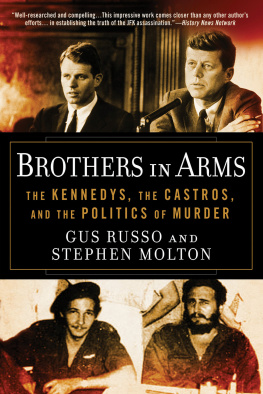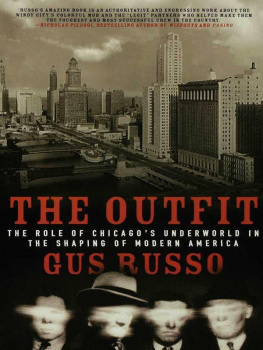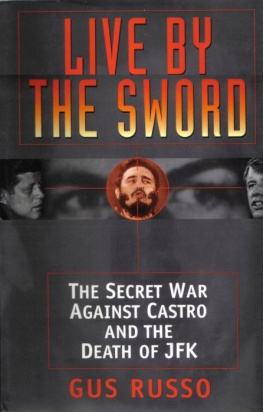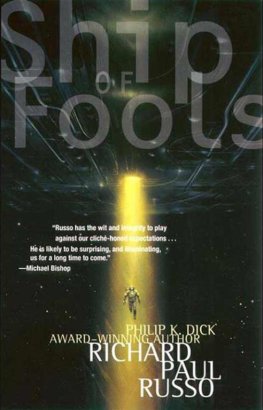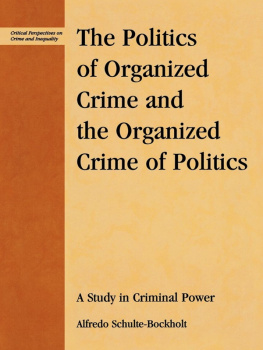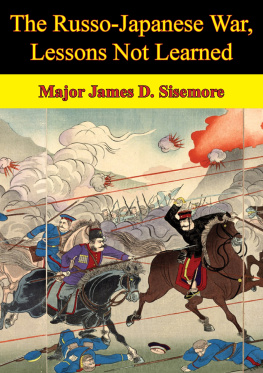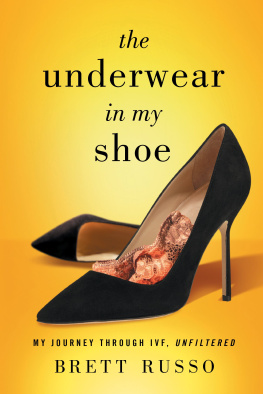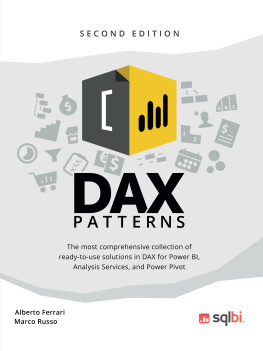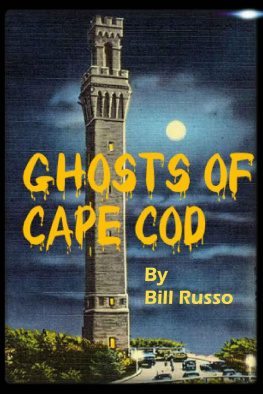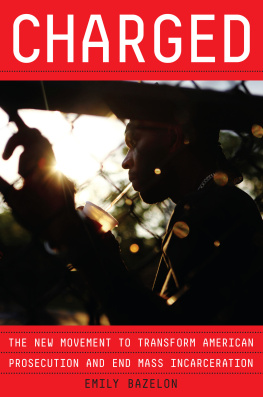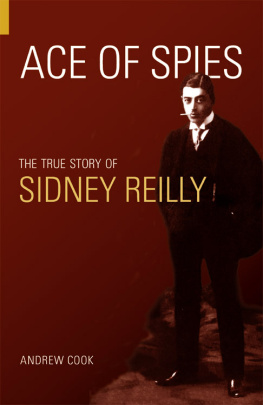Cast of Characters
Antonino Leonardo Accardo (19061992) aka "Tony," "Joe Batters," and "The Big Tuna." Served as boss of Chicago's Outfit, the most powerful underworld cartel in U.S. history for over six decades in the twentieth century. A major force in national bookmaking, labor racketeering, the Teamsters Pension Fund, and Las Vegas casino gambling. Accardo treated Sid Korshak like a son.
Jacob "Jake" (or "Jack") Arvey (1895-1977) Chicago-born attorney/political kingmaker who built one of the most powerful patronage "machines" in America. He served as a mentor to many of Chicago's most "well-connected" Jewish attorneys, and as a crucial vote deliverer for Democratic presidents such as FDR, Truman, and JFK. Key early supporter of the state of Israel.
David Lionel Bazelon (1909-1993) Chicago tax attorney, originally in law firm with college buddy Paul Ziffren, but left private practice to become Truman's assistant attorney general in charge of the lands division, a position that he used to his advantage in his own real estate investments. He quickly advanced to become director of the Office of Alien Property, where he oversaw the disbursement of land (often to his Chicago pals) seized from the Japanese Americans sent to internment camps during World War II. Eventually became a chief judge in D.C.'s Court of Appeals.
Charles Bluhdorn (1926-1983) aka "The Mad Austrian." Austrian immigrant who parlayed a successful auto parts distributorship into a conglomerate comprising over a hundred firms, all consolidated in 1958 when he formed Gulf & Western Inc. In 1966, Bluhdorn purchased struggling Paramount Pictures, named Sid Korshak's sycophant Bob Evans as production chief, then brought in the Mafia's Vatican money launderer Michele Sindona as a major "silent" investor in the movie studio. Bludor utilized Sid Korshak's talents to oversee his Chicago racetracks' labor issues invested in Korshak's mob retreat, The Acapulco Towers.
Albert Romolo Broccoli (1909-1996) aka "Cubby. One of Sidney Korshak's closest Beverly Hills friends, and producer owner of the James Bond movie franchise. When Broccoli produced Diamonds Are Forever in Las Vegas, Korshak was the uncredited "legal advisor." donating both his Riviera Hotel and his girlfriend Jill St. John to the production.
Edmund G. "Pat Brown" (1905-1996) San Francisco-born attorney and respected governor of California (1959-67). Father of California governor Jerry Brown. Received important political and financial support early and often from Sid Korshak and friends. On board of directors of Bernie Cornfeld's Investors, Overseas Services (IOS), which bilked investors out of hundreds of millions, before imploding after allegations of being a fraudulent pyramid scheme and money launderer for the mob. (Founder Cornfeld served eleven months in a Geneva jail, before charges were dropped, allowing him to move to Beverly Hills and date Heidi Heiss.)
Jerry Brown (Edmund G. Brown Jr.) (1938-) aka "Governor Moonbeam." Governor of California (1974-83) who received controversial labor support from Sid Korshak, allegedly in return for Brown's favored treatment of Korshak's California racetrack-owner clients. Later, a presidential candidate (1992) and mayor of Oakland, California. Dated Linda Ronstadt.
Delbert W. "Del Coleman (1926-) After selling his interest in Seeburg Inc. (a jukebox manufacturer linked to the Outfit by the Chicago Crime Commission), the Chicago entrepreneur, an investor in Sid Korshak's Acapulco Towers, connived with Korshak to take over the Parvin-Dohrmann company as part of a master plan to buy the Stardust and other Vegas casinos. The affair ended with Coleman, Korshak, and others being rebuked by the Securities and Exchange Commission for stock manipulation. The experience also led to a permanent falling-out between Korshak and Coleman.
Morris Barney "Moe" Dalit (n Dolita ) (1899-1989) aka "Moe Davis" and "The Godfather of Las Vegas." The leader of Cleveland's Mayfield Road Gang, where he specialized in bootlegging and gambling. Moved to Las Vegas, where he owned mob-skimmed Desert Inn, before expanding into numerous other Vegas properties, and the formerly mob-friendly La Costa Resort in Southern California. Considered Sid Korshak his legal adviser.
Allen M. Dorfman (1924-1983) For many years, did the Outfit's (and Sid Korshak's) bidding as manager of the Teamsters Pension Fund, disbursing over 5500 million in low-interest loans, especially to Chicago hoods in Las Vegas. In return, he received kickbacks on the loans, and his insurance company was named carrier of the lucrative Teamsters' Health Care Fund. Soon after his convictions on the kickbacks and the bribery of Nevada senator Howard Cannon, he was murdered in the Chicago suburbs, amid contentions that he had been "flipped" by the feds.
Bob Evans (n Robert J. Shapena) (1930-) Manhattan-born clothing sales man for his brother Charles's Evan-Picone clothing line. After a brief flirtation with acting, named by Gulf & Western chief Charles Bluhdorn as production head at Paramount Studios, which he gave a new life after producing hits such as The Godfather and Love Story. Well-known abuser of narcotics, Evans fell out with his longtime "consigliere," Sid Korshak, after being busted in 1980 for cocaine possession, narrowly escaping a trafficking charge. It was reported that he later came under suspicion when Roy Radin, an investor in Evans's Cotton Club movie, was murdered in 1983, amid a haze of massive cocaine purchases and thefts. When the case came to trial in 1989, Evans, under the guidance of his attorney, Korshak friend Robert Shapiro, took the Fifth Amendment and refused to testify. Evans was a close friend and promoter of child rapist and director Roman Polanski. Dated (fill in the blank with starlet names). Serial husband.
John Jacob Factor (1889-1984) aka "Jake the Barbet." British stock swindler, brother of Hollywood cosmetics baron Max Factor. After hiding out in Chicago, Factor faked his own kidnapping (with the Outfit's help) to avoid extradition to the UK (sending an innocent "kidnapper" to jail for life). Later, Factor fronted for the Outfit at their Stardust Hotel in Las Vegas. In Sin City, Jake took orders from Sid Korshak, while in Los Angeles, brother Max Factor employed Korshak to keep labor in line. Noted philanthropist.
Charlie Gioe (n Joye) (1904-1954) aka "Cherry Nose." Bookie in the Capone Syndicate, co-owner of Chicago's Seneca Hotel (a key Supermob Crossroads) with Alex Greenberg: convicted in the 1943 Hollywood extortion scandal, after which Sid Korshak, who had visited Gioe in prison twenty-two times, arranged for his parole supervision.
Alex Louis Greenberg (1891-1955) aka "The Comptometer." Chicago bootlegger and real estate investor for the Capone mob and the Outfit, loan shark, and part owner of the Seneca Hotel. Partnered with Paul Ziffren and others in California land investments.
Al Hart (1904-1979) Bootlegger in the Capone mob, distillery owner, backer of Bugsy Siegel in Las Vegas. After move to California, he owned the mob-friendly Del Mar Race Track and founded the mob-friendly City National Bank of Beverly Hills, later the largest independent bank in California. With Sid Korshak, an original investor in both the Bistro restaurant and Korshak's gangster getaway, The Acapulco Towers.
Connad Hilton (1887-1979) New Mexico-born patriarch of the Hilton Hotel dynasty, partnered with mob-front Arnold Kirkeby to expand his empire, which utilized Sid Korshak as labor consultant. Paid for his long association with Korshak when his bid to obtain a New Jersey casino license was rejected in 1985, largely due to Korshak's mob ties.
James Riddle "Jimny Hoffa (1913-1975?) Rugged son of an Indiana coal miner who seemed predestined to head a violence-prone organization like the Teamsters, which he did from 1957 until his imprisonment for jury tampering in 1967. Hoffa was only able to attain his post thanks to the key backing of Outfit bosses such as Curly Humphreys, who had their sights fixed on the heavily endowed Pension Fund. When Hoffa allowed them Las Vegas loans, he had to answer to Sidney Korshak. Hoffa disappeared in 1975 after he announced he wanted to take back the Teamster presidency from a cabal that made Hoffa's relationship with racketeers seem benign by comparison


